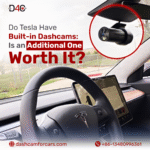What’s better—wired vs wireless dash cams? This question is crucial for every driver, from daily commuters to fleet managers. Dash cams don’t just record accidents; they prevent disputes, lower insurance costs, and even save lives. But with two main types—wired (local storage) and wireless (cloud-connected)—how do you choose?
In this guide, we’ll break down key differences, benefits, and real-world uses so you can pick the best dash cam for your needs.
Understanding the Basics: How Do Dashcams Work?
Dash cams continuously record road footage, but their power source and storage vary:
- Wired dash cams plug into your car’s power (cigarette lighter or hardwired) and save videos to an SD card.
- Wireless dash cams connect to Wi-Fi/cellular networks and upload footage to the cloud.
Both types help with:
✔ Accident evidence
✔ Fraud prevention
✔ Driver safety monitoring
Wired vs Wireless Dash Cams: The Key Differences Explained
| Feature | Wired Dash Cams | Wireless Dash Cams |
|---|---|---|
| Power Source | Hardwired to car battery/cigarette lighter | Battery-powered + cloud connectivity (some plug-in hybrids available) |
| Storage | Local SD card (manual retrieval required) | Automatic cloud backup + optional local storage |
| Installation | Complex (professional hardwiring recommended) | Plug-and-play (minimal wiring, some fully cordless) |
| Footage Access | Physically remove SD card to view recordings | Instant remote access via smartphone/desktop app |
| Real-Time Alerts | Limited (post-incident review only) | Live notifications for collisions, speeding, or theft |
| Parking Mode | Drains car battery if hardwired improperly | Smart voltage cutoffs prevent battery drain |
| Best For | Budget users, basic evidence collection | Fleet managers, real-time monitoring, AI safety features |
The Rise of Wireless Dashcams: More Than Just a Trend
Wireless dash cams are growing fast—here’s why:
🚗 1. Easy Access to Footage Anytime, Anywhere
- View live or past recordings from your phone.
- Example: A fleet manager checks a collision video within minutes to exonerate a driver.
🔒 2. Better Security & Data Protection with Cloud Backup
- Encrypted storage prevents tampering.
- No risk of losing footage if the SD card fails.
💾 3. Greater Storage, Less Hassle
- Cloud plans offer unlimited video history.
- No need to swap SD cards.
⏱️ 4. Real-Time Alerts & Incident Detection
- Get instant notifications for crashes or harsh braking.
⚡ 5. Minimal Installation—No More Tangled Wires
- Some models run on internal batteries for short trips.
Cordless Dash Cam vs Wired: Real-Life Scenarios
Stories speak louder than specs. While technical differences matter, real-world examples show why choosing between cordless dash cams and wired systems can make—or break—critical moments. From exonerating drivers in accidents to catching thieves red-handed, here’s how each type performs when it matters most.
- Taxi Driver: A wireless dash cam for car proved a passenger’s false claim, saving $3,000 in repairs.
- Fleet Manager: Cloud footage helped fire a reckless driver before an accident happened.
- Parent: A wired dash cam captured a hit-and-run while parked overnight.
Driving Smarter: How Wireless Dashcams Shape the Future
Dash cams aren’t just cameras anymore—they’re AI-powered safety guardians. Wireless technology is revolutionizing road security, turning passive recording into active collision prevention, fleet optimization, and even insurance savings. Discover how cutting-edge wireless car camera are rewriting the rules of road safety—for drivers, businesses, and entire cities.
- AI-powered alerts reduce accidents by 40% in fleets.
- Lower insurance premiums with verified safe driving.
- Dashcam For Cars’ solutions integrate GPS + cloud analytics for smarter fleets.
Debunking Myths Around Dashcam Without Wires
❌ Myth: “Wireless dash cams don’t need power.”
✅ Fact: Most still need charging but offer battery backups.
❌ Myth: “Cloud storage is unsafe.”
✅ Fact: Encryption protects footage better than SD cards.
Choosing the Right Wireless Dash Camera
Top Features to Look For:
✔ Cloud storage plans
✔ Long battery life
✔ 4K + night vision
✔ AI collision alerts
3 Top Picks:
1. SkyWonderGPS’s WD02 – 4 Channel AI Dashcam with ADAS and DMS
Overview: A professional-grade dashcam with 360° coverage and AI-powered safety alerts. Perfect for fleet managers and safety-conscious drivers.
Pros:
✔ 4-channel recording (front, rear, interior, side)
✔ Advanced Driver Assistance (ADAS) with collision warnings
✔ Driver Monitoring (DMS) detects fatigue/distraction
✔ Cloud connectivity for remote access
Cons:
✖ Higher price point than basic models
Best For: Commercial fleets, ride-hailing services, and drivers wanting maximum protection.
2. D4C’s D9 Dual Lens Dashcam
Overview: A compact dual-lens dashcam capturing front and cabin footage simultaneously.
Pros:
✔ Discreet design with no bulky wiring
✔ Infrared night vision for clear cabin recording
✔ Wi-Fi enabled for easy video downloads
✔ Parking mode with motion detection
Cons:
✖ Limited to 1080p resolution
Best For: Taxi drivers, rideshare operators, and parents monitoring teen drivers.
3. Crossbeats RoadEye Neo Dash Camera
Overview: A budget-friendly plug-and-play dashcam with essential safety features.
Pros:
✔ Super affordable with good video quality
✔ Easy installation (cigarette lighter power)
✔ Built-in GPS for speed/route tracking
✔ Loop recording auto-overwrites old footage
Cons:
✖ No advanced AI features
✖ Basic parking mode (no voltage cutoff)
Best For: Everyday drivers who want reliable recording without complexity.
Which One Should You Choose?
- Need professional fleet monitoring? → WD02
- Want cabin + road coverage? → D9 Dual Lens
- On a tight budget? → RoadEye Neo
All three options balance performance, price, and protection—pick based on your needs!
Conclusion: Wired or Wireless?
The choice between wired and wireless dash cams comes down to your priorities. Wired models work well for basic recording needs, while wireless dash cams offer smarter features like real-time alerts and cloud storage. For most modern drivers, wireless is the way forward – offering better protection without sacrificing convenience.

